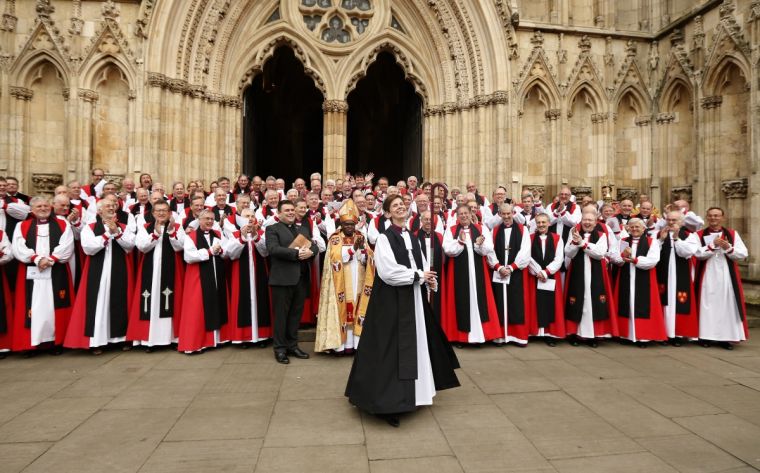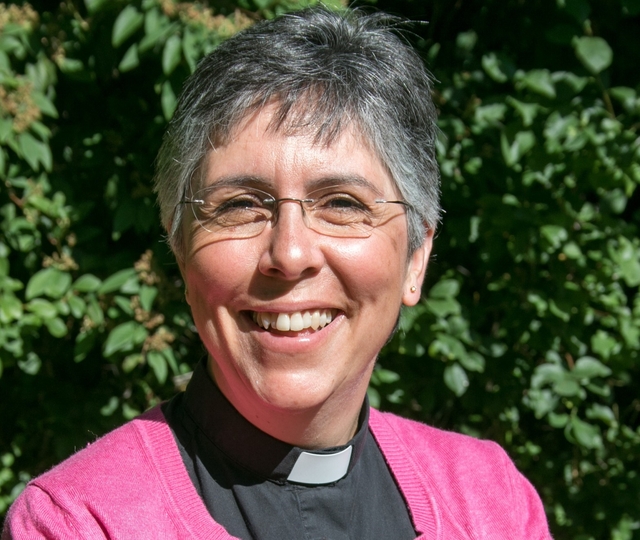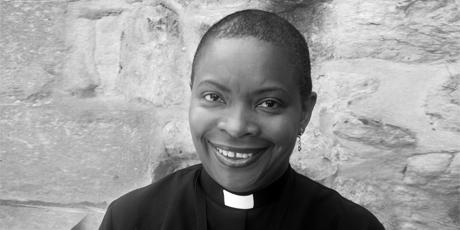BAME clergy to receive special mentoring in Church of England bid to boost diversity
Black and ethnic minority future clergy will receive special mentoring under a scheme to be set up by the Church of England.
Officials are trying to tackle a shortfall in minority ethnic groups taking holy orders with latest figures showing that 92 per cent of clergy, and 94 per cent of senior clergy, are white and British.

Following the likes of the BBC and PwC, who have special mentoring schemes for people of minority backgrounds, the programme for potential BAME clergy will be launched this autumn to drive a boost in take-up.
Last year there was a 14 per cent increase in the number of people going forward for ministry, the 2017 statistics revealed, and for the first time in 15 years there were more female than male ordinands.
However just 3.5 per cent of clergy are BAME and among new ordinands last year only seven per cent were from minority ethnic backgrounds.
There remains a 'significant challenge' around recruiting more BAME clergy, the Church has admitted.
'God calls people from all walks of life, and our ministers should reflect the society we are part of,' it said on a page announcing the mentoring scheme.
Last year the Church created a bishop specifically for BAME communities. Canon Dr Guli Francis-Dehqani was an Iranian refugee to the UK and became the first ever bishop of Loughbourgh specifically tasked with supporting the Church's BAME clergy and will be based mainly in Leicester, one of the UK's first primarily non-white cities.
Rosemarie Davidson-Gotobed, the CofE's first national minority ethnic vocations officer, said a mentoring scheme was 'nothing new' and was just drawing on best practice.
'It has a proven track record of encouraging poeple by giving them people who are "like themselves" to accompany them on their journey to whatever they are doing. In our case that is ordination,' she told Christian Today.
'It is an urgent thing because it is commonly understood that at the moment we are not as representative as the society that we serve,' she added. 'Within our churches there are people from all sorts of ethnic and cultural backgrounds.
'It is important for our churches to have diversity of leaerhisp because that is how our society is. Our society is rich and diverse. Why not have that in our church leadership and structures? People learn from each other about themselves but also a different worldview that they probably haven't heard of before. That nourishes their faith and how they go to scripture and what they see in the world which they hadn't seen before because all they have around them is people like them.'

It comes as the CofE urges its 30,000 serving ministers to lead campaigns in their parishes around Vocations Sunday this week. Although aimed at both ordained and non-ordained members, the Church of England is looking to increase the number of people becoming priests by 50 per cent by 2020 if it is to reverse the overall decline in clergy numbers.
Although the numbers of new ordinands are increasing, the overall number of clergy is falling because of the rate at which older ministers are retiring.
The Great Vocations Conversation campaign is encouraging ministers to have discussions around people's purpose in life with people who are 'significantly different from how you would identify yourself'.
'This is particularly important where people have historically been excluded for reasons of gender, class, ethnicity, age, disability, mental health, sexuality, culture, or academic background,' the Church's website on the campaign said.

The bishop of Guildford, Andrew Watson, is chair of the CofE's ordained vocations working group and said: 'As I look back over my Christian journey, I've been so grateful for those who have given me various nudges along the way, encouraging me to take my vocation seriously. The Great Vocations Conversation gives us a wonderful opportunity to be one of those people for others, as together we respond to the call of Christ to "bear fruit that will last".'
Rev Dr Catherine Okoronkwo, a curate in Lichfield Diocese, who was ordained a priest last year, said: 'Conversations have played an enormously influential role in my path to ordained ministry, from a chance meeting with the Archbishop of York to talking with diocesan clergy tasked with encouraging vocations in the Church of England.
'Clergy and lay people can play a vital role in helping people to realise their potential and encouraging people to explore their vocation. At the heart of my journey was being open to God's prompting, leading and timing.'











